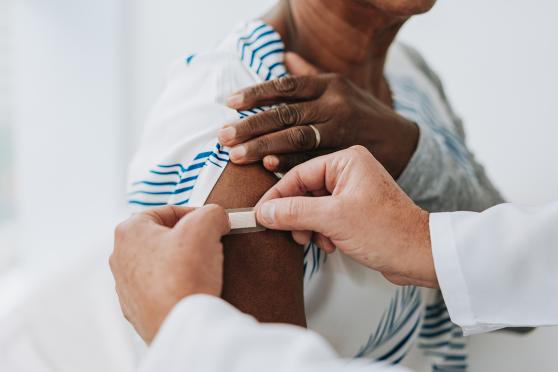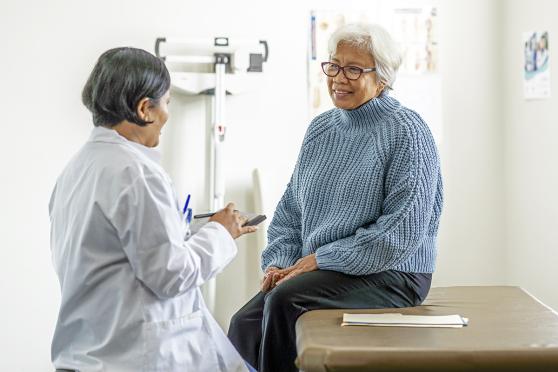The facts about breast cancer that can save your life
We answer your most pressing questions about this deadly cancer — and how you can protect yourself.

It can be hard to stay on top of our health. Life gets busy, unforeseen events happen, and important self-care milestones can fall through the cracks. But one you don’t want to mess with: your breast cancer screening. Here are answers to six common questions about the disease and the best way to prevent it. Get the facts — then get scheduled! Also, be sure to discuss with your doctor about waiting to receive a mammogram at least 6 weeks after you receive any COVID-19 vaccination.
QUESTION #1: How common is breast cancer?
THE ANSWER: It’s one of the most common cancers among American women. In fact, 1 in 8 will develop it in their lifetime. And the American Cancer Society estimates that it will claim the lives of more than 43,000 women in 2021. Women under age 45 account for about 10 percent of breast cancer cases, but most who are diagnosed are age 50 or older. It can also affect men, but rarely.
QUESTION #2: What causes breast cancer?
THE ANSWER: It’s difficult to point to any one thing that causes breast cancer. Many factors can raise your risk, according to the Centers for Disease Control and Prevention (CDC). Anyone can get breast cancer, but being female, being older than 50, having the BRCA1 and/or BRCA2 gene mutations, starting your period before age 12, and starting menopause after age 55 are risk factors you can’t change.
QUESTION #3: What lifestyle changes can reduce breast cancer risk?
THE ANSWER: Many healthy lifestyle habits can help lower your risk of breast cancer. They also can improve your odds of a good outcome if you face a diagnosis. Cancer experts suggest eating a diet filled with fruits and vegetables, getting regular physical activity, and avoiding alcohol and cigarettes. It’s also important to get enough sleep.
Some medications, such as hormone replacement therapy, may increase your risk for breast cancer. Talk to your doctor about how the medications you take may impact your risk, too.
QUESTION #4: Should I do breast self-exams?
THE ANSWER: Yes, self-exams help women become familiar with how their breasts normally look and feel, so they can spot and report any changes to their doctor – especially between office visits. Still, self-checks aren’t recommended as a screening tool to help find breast cancer, according to the American Cancer Society.
QUESTION #5: When should I get screened?
THE ANSWER: The U.S. Preventive Services Task Force (an independent group advising on preventive testing) recommends first-time mammograms at age 50 for average-risk women and then continuing every two years. Women with a parent, sibling, or child with breast cancer are at higher risk and may benefit from beginning screening in their 40s. Always discuss with your doctor what kind of screenings are best for you and when they should be performed.
Ask your doctor if you need screening in your 40s or earlier, especially if:
- A first-degree relative (a parent, sibling, or child) had breast cancer.
- A second-degree relative (aunt, uncle, or grandparent) had breast cancer.
- You have a clear genetic risk, especially the BRCA1, BRCA2, or other gene mutations.
A mammogram can detect tiny changes to breast tissue that could later become breast cancer. When breast cancer is found early, treatment is often simpler and the cure rate higher.
QUESTION #6: What are some signs of breast cancer?
THE ANSWER: One of the most common symptoms is a new growth in the breast. Some lumps may be tender, while others may be painless. And some even grow in the underarm area. But not all breast cancers cause a breast lump. Other warning signs include changes in the size or shape of the breast or nipple, pain in the breast, or discharge from the nipples.
As always, discuss any changes or concerns with your health care team. And know that by signing up for a mammogram, you’re taking a huge step in protecting yourself — and your future.


